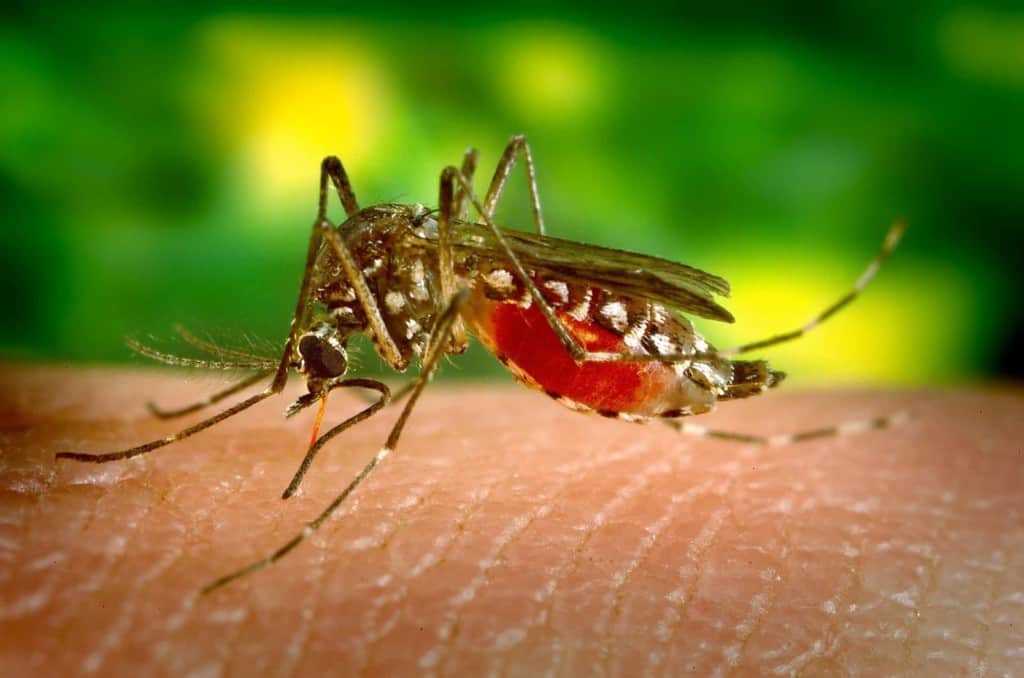With summer in full swing, adding spraying mosquito repellant to your daily routine is necessary. While these commercial repellants effectively prevent bug bites, they often contain potent chemicals that are toxic to the environment and humans. However, if the infestation gets out of hand, you may need professional mosquito control services.
Want to keep the bugs away and keep your health in check simultaneously? Consider natural bug repellants.
The Best Natural Bug Bites Cure
The best bug bites cure uses natural ingredients like essential oils to keep insects away by blocking their ability to smell. With these repellant alternatives, you’ll enjoy the best summer days without itching and scratching.
Read on for twelve ideas for the best natural bug bites cure.
1. Citronella
As a well-known all-natural mosquito repellant, citronella is one of the most effective ways to keep insects away. Citronella is available as an essential oil and in the form of candles. While the oil evaporates quickly, citronella candles are useful during their burn time.
According to research, citronella is effective when applied in its purest form. Protecting against up to three different types of mosquitoes, citronella reportedly lasts for 120 minutes or less.
While citronella is often a popular choice for everyday use during the summer. However, many experts recommend that anyone preparing to travel to areas with insects carrying diseases must use a repellent stronger than citronella.
2. Lemon Eucalyptus
The essential oil lemon eucalyptus contains around 85% citronella. Famous for its refreshing scent, many people opt for lemon eucalyptus as it smells much more pleasant than traditional repellants.
Certain studies show that repellant formulas with 32% lemon eucalyptus essential oil offer 95% protection from insects for up to three hours.
Compared to DEET, this essential oil repellant has a shorter protection period and evaporates particularly quickly.
While you can buy this oil online or in stores and use it as is. Or, you can use this essential oil to make your own DIY mosquito repellant. Combine witch hazel, vanilla extract, and the lemon eucalyptus essential oil. You’ll have your own powerful mosquito repellant that smells fresher than any commercial alternative.
3. Cinnamon Oil
More than an ingredient in coffee and oatmeal, cinnamon oil is another popular choice for repelling mosquitoes.
According to researchers, cinnamon oil works to kill mosquito eggs. Additionally, it works as a powerful repellant with adult mosquitoes.
Want to use cinnamon oil to keep your skin safe from bug bites? Make your own repellants using a ¼ teaspoon of this oil with every four ounces of water. Apply the repellant to your skin, clothing, plants, and upholstery in your home and backyard with a spray bottle on hand.
When making this repellant, be sure to use the right amount of water as cinnamon oil can become an irritant if it is too concentrated.
4. Thyme Oil
Worried about mosquitoes carrying diseases? Before reaching for the DEET, try some thyme oil.
Thyme oil is reportedly one of the best options for repelling malarial mosquitoes. According to one study, 5% of thyme oil has a 91% protection rate when applied to the skin.
In addition to using thyme oil to protect your skin, you can use thyme leaves. When burned, these thyme leaves offer an 85% protection rate for a period of 60 – 90 minutes.
Going the DIY route? Make your own homemade thyme oil mixture with four drops for every teaspoon of your base oil (think jojoba or olive oil). If you’re turning this oil into a spray, mix in five drops of this oil and two ounces of water.
5. Greek Catnip Oil
If you’ve never heard of catnip oil, this mosquito repellant comes from the mint family related to the popular catnip plant. This natural repellant comes from oil and extracts derived from the plant’s bruised leaves.
According to a study, the oil from this plant can repel mosquitoes for up to three hours. Other research shows that this plant is more effective than commercial DEET alternatives when repelling mosquitoes.
6. Soybean Oil
According to a specific study, soybean-based product repellants can provide adequate protection from mosquitoes.
Want to make your own repellant with soybean oil? Mix this oil with some lemongrass oil for the most effective guard against various mosquito species.
7. Tea Tree Oil
Tea tree oil has many benefits for the skin and body. This is an oil with anti-inflammatory, antimicrobial, and antiseptic properties. Therefore, many individuals find tea tree oil incredibly versatile natural repellent.
Repellants containing this oil have proven to be very useful when preventing bug bites from biting midges, bush flies, and mosquitoes.
If you’ve just started using tea tree oil as a repellant and already have a few bug bites, you’re in luck. This oil is also an incredible treatment for bites. Apply this oil to any affected areas and expect to feel immediate relief.
With the tingling and refreshing feeling provided by tea tree oil, you’ll immediately start feeling better.
8. Geraniol
Geraniol is a kind of alcohol used for its flavor and fragrance. Derived from plant oils like rose, lemongrass, and citronella, geraniol is an ingredient in certain mosquito repellants and is useful for up to four hours.
Many of the most effective natural repellants with geraniol include soybean oil, so consider adding this in if you’re making your geraniol repellant.
When using this alcohol as a natural repellant, avoid touching your eyes as it may irritate them. Additionally, use caution if you have sensitive skin, as this may also lead to irritation.
9. Neem Oil
Neem oil is often advertised as an alternative to commercial repellant, though it is not quite as effective as other solutions.
Most importantly, neem oil offers over 70% protection for three hours.
When using neem oil, avoid using it on your skin, as it reportedly causes skin irritation. If you’re traveling to other countries, experts agree that you should use a different repellant to protect you against mosquito-borne diseases.
If you’re hoping to repel mosquitoes with this neem oil, make your repellant using 50 to 100 ml of the oil in oil or water. Additionally, when using this oil, use cold-pressed, extra virgin neem oil.
10. Clove Oil
Cloves are often used alongside cinnamon when baking or in drinks with the addition of sugar and lemon. If you have clove oil handy, you are already on your way to creating your effective mosquito repellant.
According to a study, when researchers used clove essential oil in a mix with coconut and olive oil, they could protect against mosquitoes with yellow fever for 96 minutes.
11. Peppermint Oil
Peppermint essential oil is a popular choice for aromatherapy but is also one of the best ways to repel mosquitoes naturally.
According to certain studies, higher concentrations of essential oil are quite effective.
Other studies point out that this essential oil is effective against mosquito larvae as it provides 100% protection against bug bites from mosquitoes with yellow fever for 150 minutes.
When using peppermint oil as a repellant, be sure to dilute it, as it can be particularly irritating when used on the skin in its concentrated form.
12. Basil Oil
Basil, a common ingredient used in meals worldwide, is also an effective repellant.
According to certain studies, basil offers around 40% protection against mosquitoes that carry malaria.
Researchers also note that the basil essential oil provides 100% protection for six hours against bites from yellow fever mosquitoes.
Best Practices for Using Natural Alternatives
While many of these natural alternatives are healthier choices than DEET products, it’s essential to follow best practices when using these oils. As essential oils should never be used directly on the skin, they must be diluted with carrier oil. When making your repellant, jojoba, almond oil, and similar oils are the best carrier oils.
Remember that as essential oils are not regulated through the FDA, you must be careful when purchasing these oils. Buy these essential oils from reputable companies to ensure you are using an authentic version.
When traveling to areas known for malaria, Zika, yellow fever, and similar diseases, check with a doctor to determine which mosquito repellant is the most effective. In these situations, chemical repellants are often recommended to lower the likelihood of you contracting a deadly illness.
Also, remember that some people have allergic reactions when using these essential oils. Before using any new natural remedies, try to spot-test this product on your skin to ensure you don’t break out in hives or experience burning sensations.
Final Thoughts on the Best Bug Bites Cure
With so many effective all-natural options for protecting yourself against bug bites, you’ll enjoy an insect-free summer without sacrificing your health using a commercial repellant or sporting telltale bites or bruises from insects.
Go bug bite-free this summer with your pick of these effective natural insect repellants. Try one or all of these natural remedies to determine which one is the most effective for you.
















 Community
Community

